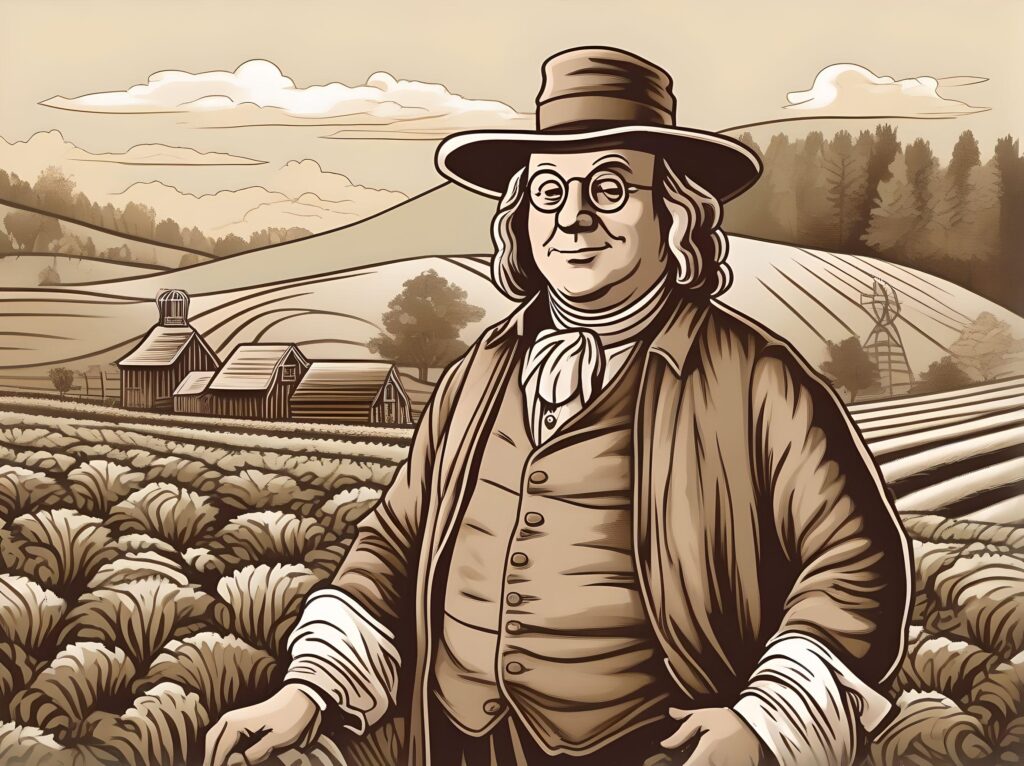Poor Richard’s Legacy: Benjamin Franklin and the Birth of an American Tradition
While Benjamin Franklin wasn’t directly responsible for creating The Old Farmer’s Almanac, his influence looms large. We can’t talk about American almanacs without acknowledging his iconic publication, Poor Richard’s Almanack.
Published under the pseudonym Richard Saunders from 1732 to 1758, Poor Richard’s Almanack was more than just astronomical tables and weather predictions. Franklin, ever the businessman and wit, crafted a unique blend of practical information, homespun wisdom, and humor.
The almanac’s content went beyond mere utility. Franklin peppered his pages with witty sayings and proverbs promoting thrift, hard work, and self-improvement. These aphorisms, often collected under the title “Silence Dogood” or later “The Way to Wealth,” became cultural touchstones. Maxims like “Early to bed, early to rise, makes a man healthy, wealthy, and wise” resonated with the American spirit of self-reliance.

Franklin’s genius lay in understanding his audience. Farmers, artisans, and tradespeople craved not just astronomical data but also practical advice and moral guidance. Poor Richard’s Almanack filled this void, offering a blend of entertainment and edification. The folksy humor and relatable persona of Richard Saunders made the lessons more palatable.
The success of Poor Richard’s Almanack paved the way for future publications like The Old Farmer’s Almanac (founded in 1792). These almanacs continued the tradition of providing practical information for an agrarian society, often incorporating weather forecasts and agricultural tips. Franklin’s impact is further seen in the inclusion of proverbs and witticisms, a clear echo of Poor Richard’s style.
In conclusion, while Ben Franklin may not have founded The Old Farmer’s Almanac directly, his Poor Richard’s Almanack laid the groundwork for the genre. Franklin’s innovative blend of practical information, homespun wisdom, and humor created a publication that resonated deeply with the American people. His influence continues to be felt in almanacs today, reminding us of the enduring power of storytelling and practical advice, wrapped in a distinctly American package.